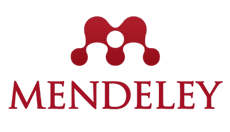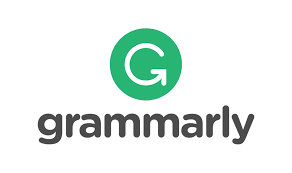The Reading Exercises in the English Students’ Book Entitled “Interactive English” for Grade VIII Students
DOI:
https://doi.org/10.57176/jn.v2i2.52Keywords:
reading exercises, curriculum 2013, interactive English textbook, junior high schoolAbstract
The textbook is one of the materials in teaching learning process which is regularly used by both teachers and students at school. Textbooks should improve the quality of teaching and learning process. The purpose of this study is to find whether or not the materials provided in the English textbook “Interactive English” designed for the eight grade of Junior high school compatible with the curriculum 2013. In this research, besides book, the researcher also used data sheets, internet and information. To facilitate students in developing their reading ability, the textbook provides five types of reading questions, namely multiple choice question, matching question, essay question, short answer question, and completion items very good category. These types of questions measure how much students understand from the reading texts. In collecting data, the researcher used documentation study by the following steps, as follows; 1) list the suggested criteria for evaluating textbook. 2) list the criteria of reading exercise suggested 3) read the English student book entitled Interactive English., 4) find out the reading exercises provided in the textbook, 5) classify them based on the criteria of reading exercise suggested by Na’ima Mosa Ali. The data is analyzed by using a descriptive qualitative method. The researcher used the steps of analyzing data as stated by The data collected for this study will be gathered from the English textbook “Interactive English” published by Yudhistira. By using this book, the students can understand the materials easily.
__________________________________________________________________________________________________________________________________
Buku teks merupakan salah satu bahan dalam proses belajar mengajar yang sering digunakan baik oleh guru maupun siswa di sekolah. Buku teks harus meningkatkan kualitas proses belajar mengajar. Tujuan dari penelitian ini adalah untuk menemukan apakah materi yang disediakan dalam buku teks bahasa Inggris “Interactive English” yang dirancang untuk kelas delapan SMP sesuai dengan kurikulum 2013. Dalam penelitian ini, selain buku, peneliti juga menggunakan lembar data. , internet dan informasi. Untuk memudahkan siswa dalam mengembangkan kemampuan membaca, buku teks menyediakan lima jenis soal bacaan, yaitu soal pilihan ganda, soal menjodohkan, soal esai, soal isian singkat, dan soal penyelesaian soal kategori sangat baik. Jenis pertanyaan ini mengukur seberapa banyak pemahaman siswa dari teks bacaan. Selain itu, peneliti harus memahami tentang evaluasi materi terutama dalam latihan. Dalam pengumpulan data, peneliti menggunakan studi dokumentasi. Proses pengumpulan data dilakukan dengan langkah-langkah sebagai berikut; 1) daftar kriteria yang disarankan untuk mengevaluasi buku teks. 2) menyebutkan kriteria latihan membaca yang disarankan oleh Na'ima Mosa Ali, 3) membaca buku siswa bahasa Inggris berjudul Interactive English., 4) mengetahui latihan membaca yang tersedia di buku teks, 5) mengklasifikasikannya berdasarkan kriteria bacaan latihan disarankan oleh Na'ima Mosa Ali. Data dianalisis dengan menggunakan metode deskriptif kualitatif. Peneliti menggunakan langkah-langkah analisis data seperti yang dikemukakan oleh Spreadley. Data yang dikumpulkan untuk penelitian ini akan dikumpulkan dari buku teks Bahasa Inggris “Interactive English” yang diterbitkan oleh Yudhistira. Dengan menggunakan buku ini, siswa dapat memahami materi dengan mudah
References
Dharma, Y. P., & Aristo, T. J. V. (2018). an Analysis of English Textbook Relevance To the 2013 English Curriculum. Journal of English Educational Study, 1(1), 6611.
Argina, A. W. (2017). Teachers as Curriculum Evaluator: The Implementation of Authentic Assessment in Curriculum 2013 by English Teacher. … : Journal of Language and Literature, 4(1), 1–24.
Ansary, H., & Babaii, E. (2002). Universal Characteristics of EFL / ESL Textbooks : A Step Towards Systematic Textbook Evaluation. January.
Royadi, D., Susiana, N., & Khumaida, F. A. (2019). Effectiveness Management of Qualitative Research in Writing Scientific Papers. Aptisi Transactions on Management (ATM), 3(1), 84–90. https://doi.org/10.33050/atm.v3i1.848
Aebersold, J.A.,& Field, M.L. 1997. From Reader to Reading Teacher: Issues and Strategies for Second Language Classroom. New York: Cambridge University.
Ansary, H and Babaii, E. 2005. Universal Systematic Textbook Evaluation. Internet TESL Journal 8/2. Avaible: http://iteslj.org/Articles/Ansary-Textbooks/.
Arikunto, Suharsimi. 2016. Prosedur Penelitian Suatu Pendekatan Praktek. Jakarta: PT. Rineka Cipta.
Armsumber, B. B. 2004. Considerate Texts. In D.Lapp, J. Flood, & N.Farnan (Eds), Content Area Reading and Learning: Instructional Strategies(2nd ed). Mahwah, NJ: Erlbaum.
Ary, Donals, Jacobs, Lucy C. Razaiech, Asghar. 1982. Pengantar Penelitian dalam Pendidikan. Surabaya: Usaha Nasional.
Bard El-Din, Z. 2009. The Effectieness of Assited Extensive Reading on Developing Reading Comprehension Strategies for Ninth Graders in Gaza Governorate. Unpublished M.A. Thesis. The Islamic University.
Breg. B. 1998. Content Analysis Qualitatve Research Methods for the Social Sciences. Boston: Mass Allyn an Bacon.
Betty, S. 2011 How to Evaluate Textbook, (Online), (http://bettysekarasih.blogspot.com/2011/05/how-to-evaluate textbook 03.html?m=1, retrived on November 12, 2014)
Berg, B. 1998. Content Analysis Qualitative Research Methods for the Social Sciences. Boston: Mass Allyn an Bacon
Brett. 2004. Enchanging Trader Performance : Proven Strategies from the Cutting Edge of Trading Psychology. New Jersey: Wiley Trading.
Chambers, F. 1997. Seeking Consensus in Coursebook Evaluation ELT Journal 51
Cunningsworth, A. 1995. Choosing Your Coursebook. Oxford: The Bath ress.
Daoud, A. and Celce-Murcia. 1979. Selecting and Evaluating a Textbook. I M. Celce-Murcia, & L. McIntosh, (Ed). Teaching English as a second or Foreign Language. Cambriage: Newbury House Publisher.
Dardjowidjojo, S. 2000. Cultural Constraints in the Implementation of Learner Anatomy: The Case in Indonesia. Journalof Soutthest Asian Education, 2 (2).
Dechant, E. V. 1982. Improving the Teaching of Reading. New Jersey: Prentice Hall.
Dewi, M. 2014. An Analysis of the Types of Reading Question in the English Textbook “ BRIGHT” for the seven Grade for Junior High School Published by Erlangga. Published Thesis. Muhammadiyah University of Surakarta.
Duffy, G.G. 2009 Expalining Reading. A Resource for Teaching Concepts, Skills and Strategis. Second Edition. New York: The Guilford Press.
Dole. J. A.,Duffy, G.G., Roehler, L.R. & Perason, P.D. 1991. Moving from the Old to the New: Research on Reading Comprehension Instruction. Review of Educational Research, 61 (2).
Ellis, R. 1997. The Empirical Evaluation of Language Teaching Materials. ELT Journal, 51(1).
Garinger, D. 2002. Textbook Selection for the ESL Classroom. Soutthern Alberta Institute of Technology. Available: http://www/cal/org/resources/Digest/021garinger.htm1#Top
Grabe, W. 1997. Teaching L2 Reading: Moving from Theory to Practice. Paper presented at TESOL Academy, Seattle University.
Grant, N. (1987). Making the Most of Your Textbook. Harlow: Longman.
Graves, K. 2000. Designing Language Course. Heinle & Heinle Publisher.
Grellet, F. 1981. Developing Reading Skills: A Practical Guide to Reading Comprehenison Exercise. Cambridge: Cambridge University Press.
Hamdan. J. 1991. Reading: A Three-Phrase Approach. UNRWA HQ. Amman: Jordan
Harris and Sipay. 1997. How to Increase Reading Ability: A Guide to Developmental and Remedial Methods. London: Longman Publishing Group.
Hornby. 2000. Oxford Advancce Learner’s Dictionary of Current English. Oxford: Oxford University Press.
Hutchinson, Tom & Torres, Eunice. 1994. The Textbookas Agent of Change. ELT Journal Volume 48/4. Oxford University Press.
Hutchinson, T. 1987. What’s underneath?: an interactive view of materials evaluation. In L. E. Sheldon, (Ed.), ELT textbooks and materials: problem in evaluation and development. ELT Documents 126, 37-44. London: Modern English Publications.
Hutchinson, T. & Waters, A. 1987. ESP: A Learning-Centered Approach. Cambridge: Cambridge University Press.
J.B. Heaton. 1975. Writting English Language Test. London: Longman
Kailani, T. And Muqattah, L. 1995. ELT Methodology 2. Al-Quds: Open University. Pub
Kemendiknas. 2013
Kitao, K. 1997. Selecting and Developing Teaching/Learning Materials. The Internet TESL Journal, 4,4.
Lee, W. 2009. Authenticity Revisited: Text Authencity and Learner Authenticity. ELT Journal. Vol. 49, No. 4. Available:http:eltj.oxfordjournals.org.
Meyer, J.B. F. 2003. Text Coherence and Readability, Topics in language Disorders, 23 (3).
Milles, M.B. & Huberman, A.M. 1992. Analisis Data Kualitatif. Universitas Indonesia: U-I Press.
Moleng, Lexy. J. 2002. Methodology Penelitian Kualitatif. Bandung: Remaja Posdakarya
Mukundan, J. 2007. Evaluation of English Language Textbooks: Some Improtant Issues for Consideration. Journal of Nelta, Vol 12 Nol 1& 2
My English Pages. 2014. Retrieved from: http://www.myenglishpages.com/
Na’ima, M.A. 2010. An Evaluation of the Reading Texts and Exercises in Sb & WB of english for Palestine-Grade 9. Unpublished S1. Gaza: The Islamic University
Nuttal. 1982. Teaching Reading Skills in a Foreign Language (2nd ed). Oxford: Heinemann
Olga, B. 2000. Developinng Reading Skill. Universidade de Lisboa. 65 Dechant, E. V. Imrpoving the Teaching of Reading. New Jersey: Prentice-Hall.
Oxford Dictionaries. 2015. Oxford Dictionary. Retrieved from http://www.oxforddictionaries.com/definiotn/english/exercise
Kementrian Pendidikan dan Kebudayaan (Ministry of education and Culture). 2014. Panduan Teknis Buku Guru dan Buku Siswa (Technical Guide of Teacher Book and Student Book). Jakarta: Kementrian Pendidikan dan Kebudayaan.
Parvas, M. & Nodoushan, M.2006. The effect of Text Cohesion on Reading Comprehension. Available:
RAND Reading Study Group. 2002. Reading for Understanding: Toward and R & D Program in Reading Comprehension. Santa Monica, CA: RAND
Reading Definiton. 2014. Reading Definitons, (Online), (retrieved from http://Irs.ed.uiuc/edu/edu/students/jblanton/read/readingdef/htm.
Research Document. 2011. (Online),
Richard, Jack C. 2002. Curriculum Development in Language Teaching. USA: Cambridgr University Press.
Riffe, D. Et.al. 1998. Analyzing Media Message: Using Quantitative Content Analysis in Research. Mahwah, NJ: Lawrence Erlbaum Associates.
Rudiyanto. 2011. Analysis on Listening Exercise in Look Ahead 2 ( English Course Book for Junior High SchoolStudent Year VIII) Published by Erlangga. Unpublished Skripsi S1. STAIN Walisongo.
Sadiman, A. 1993. Metode dan Analisa Penelitian. Jakarta: Erlangga
Sahirudin. 2013. The Implementation of the 2013 Curriculum and the Issue of English Language Teachhing and Learning in Indonesia. The Asian Conference on Language Learning. Journal. The International Academic Forum. www.iafor.org
Savage, J and Mooney, J. 1979. Teaching Reading to Children with Special Needs. USA: Allyn and Bacon, Inc.
Sheldon, L. E. 1988. Evaluating ELT Textbook and Materials..ELT Journal, 42.
Sutopo H.B. 2002 Metodologi Penelitian Kualitatif. Surakarta: Sebelas Maret University
The Free Dictionay. 2015. The Free Dictionay. Retrieved from http://www.thefreedictionary.com/exercise
Ur, P. 1996. A Course in Language Teaching. Cambridge: Cambridge University
Urguhart A.H. and Weir, C. J. 1998. Reading in a Second Language: Process, Product and Practice.. New York: Addison Wesley Longman
Widdoson, H.G. 1979. Explorations in Applied Linguistic. Oxford. Oxford Univveristy Press
Wikipedia. 2010. The Free Encyclopedia. Available: http://en.wikipedia.org/wiki/Skimming_(reading)
Wordnik. 2014. (retrieved from http://www/wordnik.com/words/exercise)
Yasid, Moh.2010. An Analysis of Reading Material in “INTERLANGUAGE: ENGLISH FOR JUNIOR HIGH SCHOOL” Textbook Published by National Education Department. Journal. Universityof Surabaya
Yuly. 2012. The Readability Level of Reading Text in the English Language Textbooks Used by the Tenth Grade. Journal of State University of Surabaya. Vol 01.No.01
Al-Btoush, O, A.(2012). An analysis of the Questions in Jordanian Secondary Stage English Language Textbooks. Unpublished master thesis, Mu’tah University, Jordan
Al-Emadi, A. (1998). A comparative study of context analysis of questions contained in Social Studies test middle school. Journal of the Education Research Center. Vol. 7(14), 23-58.
n. (Terjemahan Tri Kuntjoro). Jakarta : Gramedia.
Jayanti, K., & Senam, S. (2017). Studi kinerja guru lulusan Program Studi Pendidikan Kimia Universitas Negeri Yogyakarta di
Downloads
Published
How to Cite
Issue
Section
License
Copyright (c) 2023 Ryan Purnomo

This work is licensed under a Creative Commons Attribution-ShareAlike 4.0 International License.
You are free to:
- Share — copy and redistribute the material in any medium or format for any purpose, even commercially.
- Adapt — remix, transform, and build upon the material for any purpose, even commercially.
- The licensor cannot revoke these freedoms as long as you follow the license terms.
Under the following terms:
- Attribution — You must give appropriate credit , provide a link to the license, and indicate if changes were made . You may do so in any reasonable manner, but not in any way that suggests the licensor endorses you or your use.
- ShareAlike — If you remix, transform, or build upon the material, you must distribute your contributions under the same license as the original.
- No additional restrictions — You may not apply legal terms or technological measures that legally restrict others from doing anything the license permits.
Notices:
You do not have to comply with the license for elements of the material in the public domain or where your use is permitted by an applicable exception or limitation .
No warranties are given. The license may not give you all of the permissions necessary for your intended use. For example, other rights such as publicity, privacy, or moral rights may limit how you use the material.
















